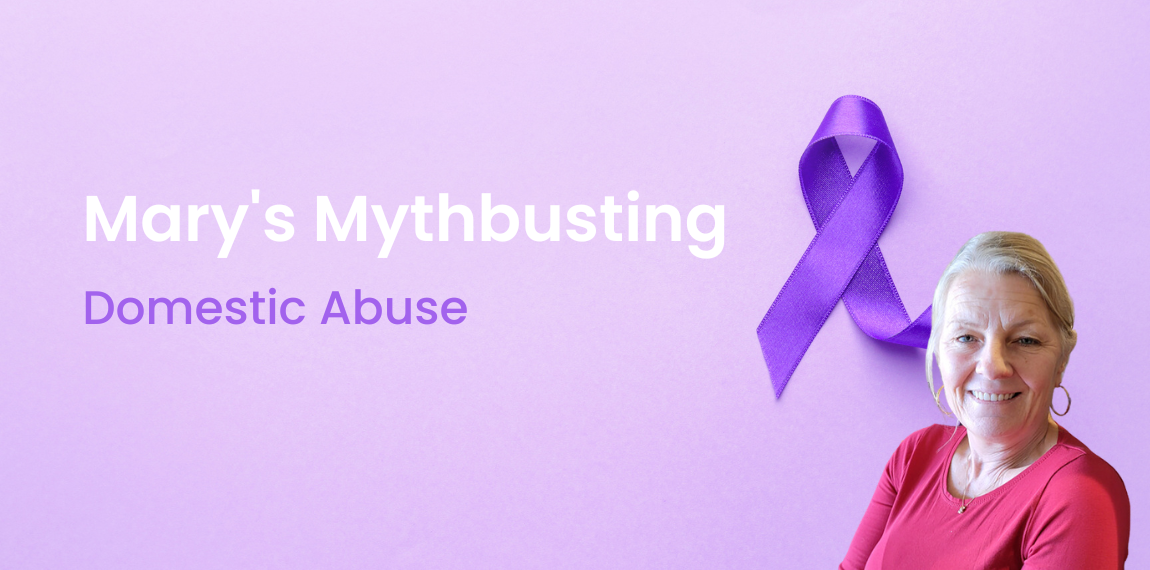Who We Are
Our Commitment

As a Wellbeing Champion, Menopause Meet Up Host, and Mental Health First Aider, you’ll have heard about Mary before – busting myths and sharing her top tips. Committed to supporting our colleagues all across Consensus whenever they need to open up, and openly sharing her experiences to help others, Mary has passionately completed training to understand further how she can support people through domestic violence, and is now our Domestic Abuse Advocate.
As a survivor of domestic abuse, I feel it is important to me to speak up and make sure people are aware of the very real danger that 1 in 5 adults in the UK have or will experience domestic violence at some point in their lives.
Before I lived through this experience, there were a lot of misconceptions I had about what Domestic Violence and Abuse was – and I’m sure many other people have had the same thoughts. But these misconceptions are caused by not talking about it, not taking action about it, so I’d like to start the conversation about Domestic abuse by clearing up some myths and misunderstandings.
Myth 1: Domestic Abuse is always perpetrated by spouses
Spouses are one of the most common perpetrators of domestic violence, but any violence at home from a person you have a relationship with whether that’s relatives, partners or friends is domestic abuse and it is serious no matter who is committing the abuse or violence.
Myth 2: Domestic Abuse is always physical
Physical violence is a horrific kind of abuse, but there are so many types of abuse and the idea that it’s only abuse if it’s physical is one of the reasons many people don’t realise, they’re being abused.
But there are many other ways abusers can try and control people that are harder to detect – using coercion, gaslighting, financial abuse, verbal abuse and even stalking. Most abusers don’t show their violent behaviour right away and gradually change their actions so it can be even harder for victims to figure out if they’re being abused.
Myth 3: It only happens to women
While the majority of domestic abuse cases are perpetrated by men towards women, abuse can happen to anyone, and anyone deserves help to get away from their abuser and access support. Men, women, non-binary people, people of all races and ages have been victims of domestic abuse and someone’s background should never make them think they can’t speak up.
Myth 4: It’s always obvious
It can be obvious – but that’s not always the case. It’s not always clear to the person being abused, or to the people around them that it’s happening at the time, with many people only realising the reality of their situation years later.
Many abusers use manipulative tactics to make a victim blame themselves, think nothing bad is happening, or make them think what’s happening is normal – and that can make it very difficult to identify when you’re experiencing abuse.
Myth 5: There’s no way out of an abusive relationship
It can feel like that, and for a lot of people it can be very difficult and dangerous but there is a way out. I felt like that when I was experiencing domestic abuse but there is support, there are places that will take you in and help you, or even just people to listen to you while you try and figure out what’s happening to you and lend an ear or some words of comfort.
Now I’m hoping to use my own experiences and recent training to offer support and guidance to any of my colleagues who may be suffering from abuse as a Domestic Abuse Advocate. I’ll be able to provide information on resources, on places to turn and just offer a friendly face to those who need it.